Flashback Friday - The July 1967 Detroit Riot and Nurse Nancy Milio
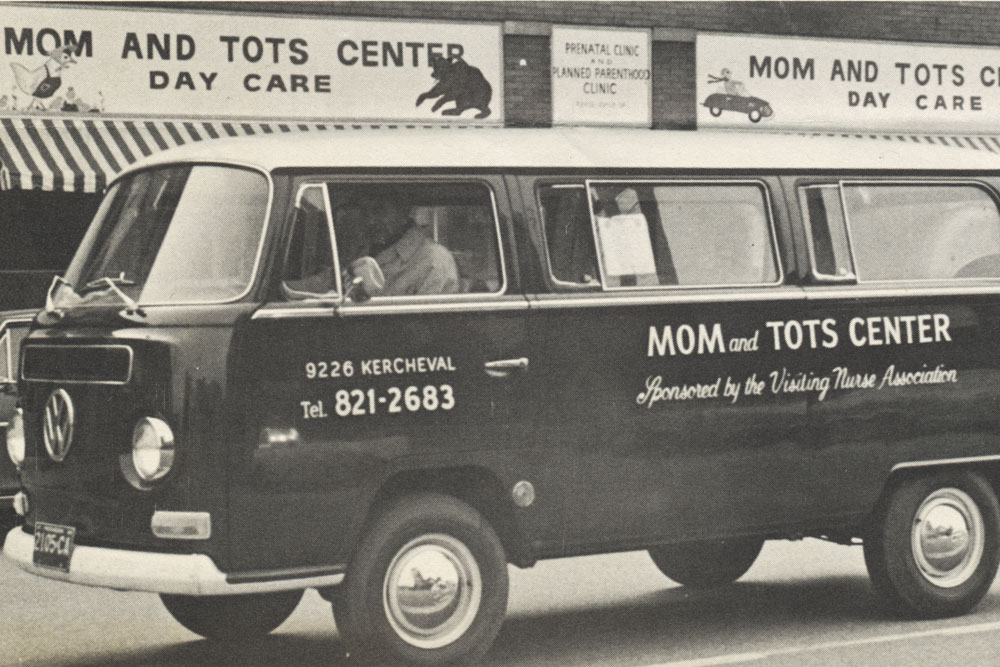
In July of 1967, Nancy Milio watched her city burning. Detroit, in the throes of one of the worst race riots in U.S. history, was like a person violently convulsing.
“Watching the flames, smelling the smoke from my relatively safe vantage point high above 12th Street, confined by the curfew, there was much time to think,” Milio recalled. “But I could not. I could only feel the greatest sadness I had ever felt up to that time. The tears seemed useless too. … I waited for the message that the Center was burning.”
The center was the Mom and Tots Neighborhood Center, a new and experimental health clinic that Milio had worked hard to establish the year before. Now, this small foothold in the community was no doubt swept away in the violence, along with everything else.
The riot that erupted on July 23, 1967 was the culmination of years of racial injustice, police brutality, poor housing, lack of jobs, and poverty among the blacks living in the 12th Street area of Detroit. When the violence ended days later, 43 people had been killed and more than a thousand had been injured. Property damages from widespread looting and fires exceeded $32 million.
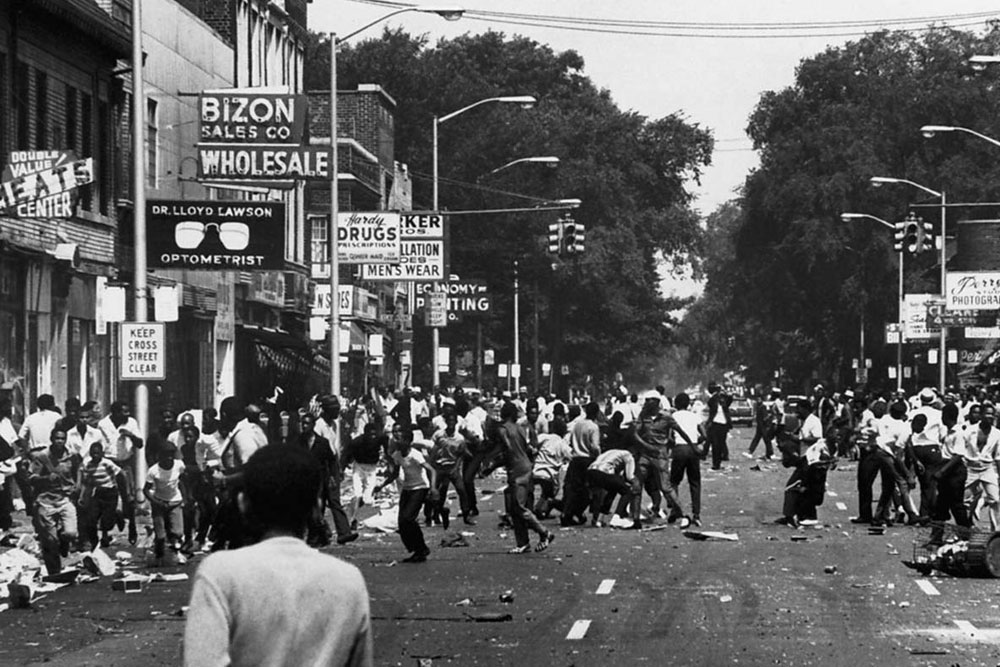
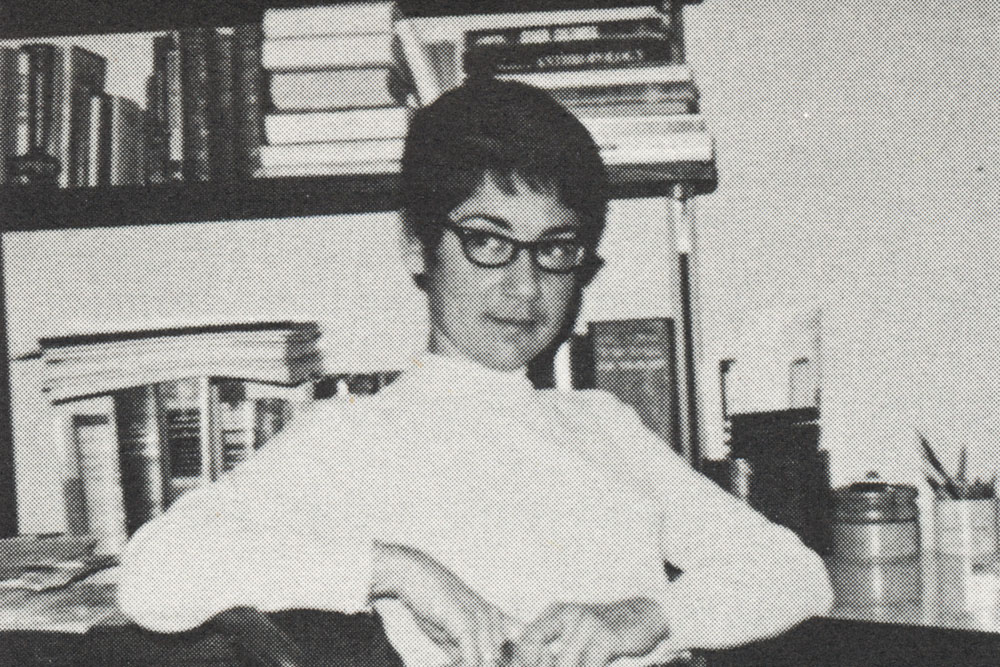

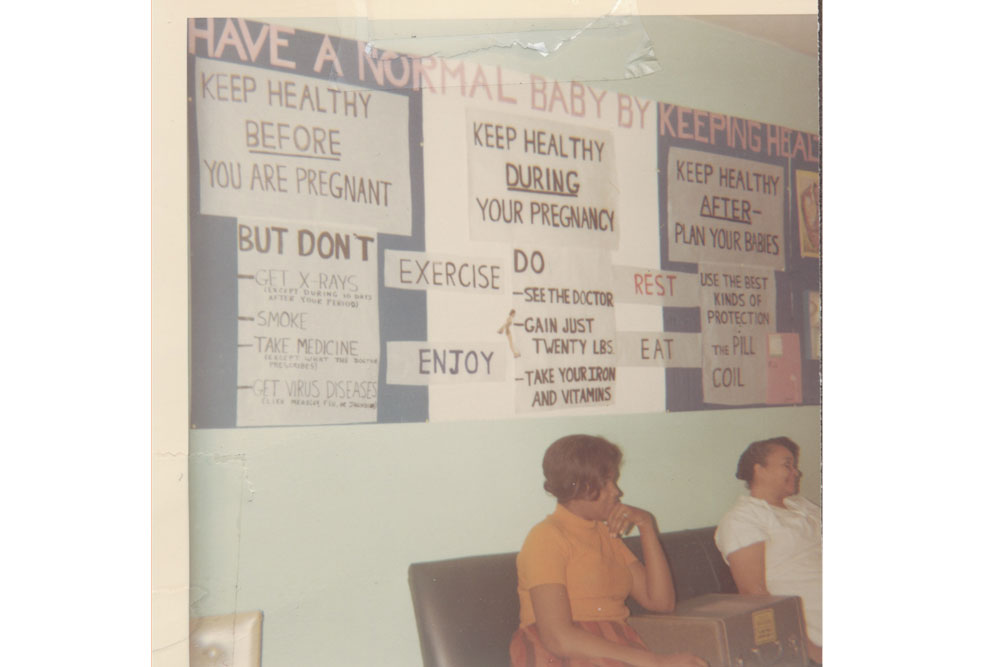
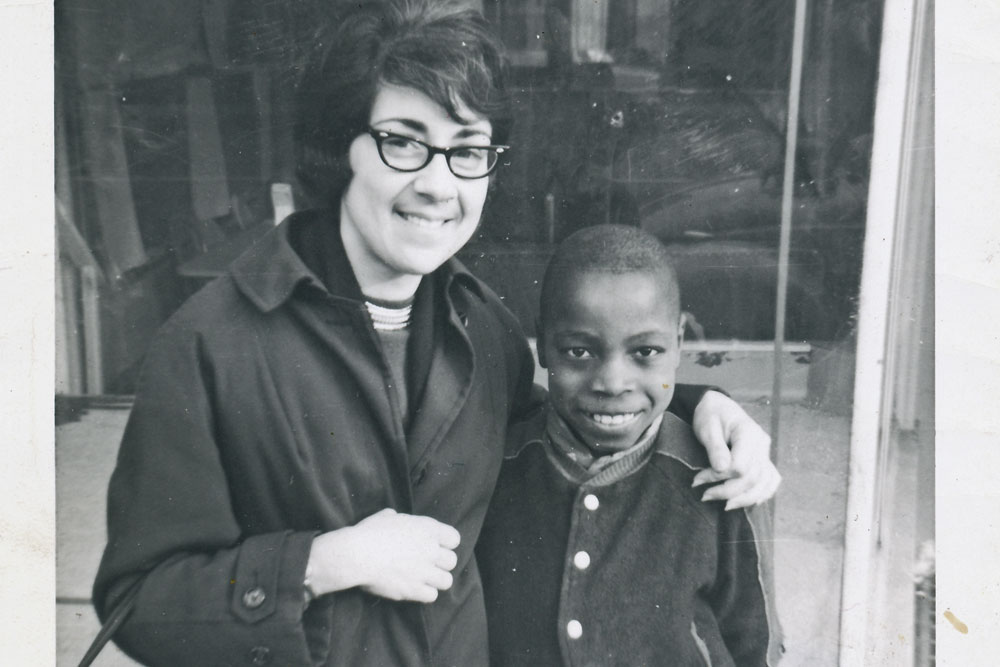

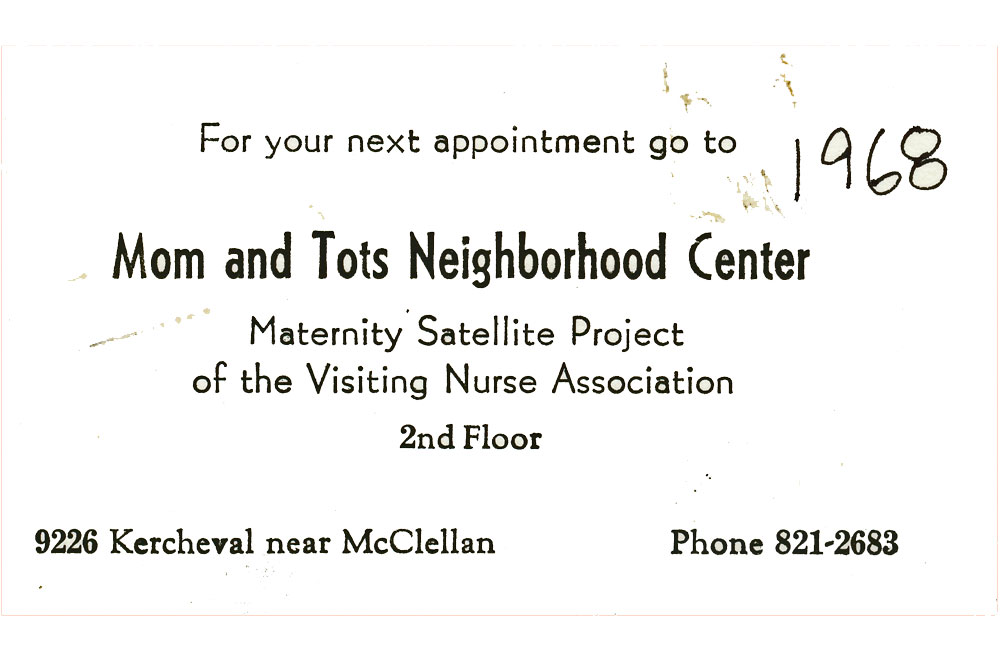
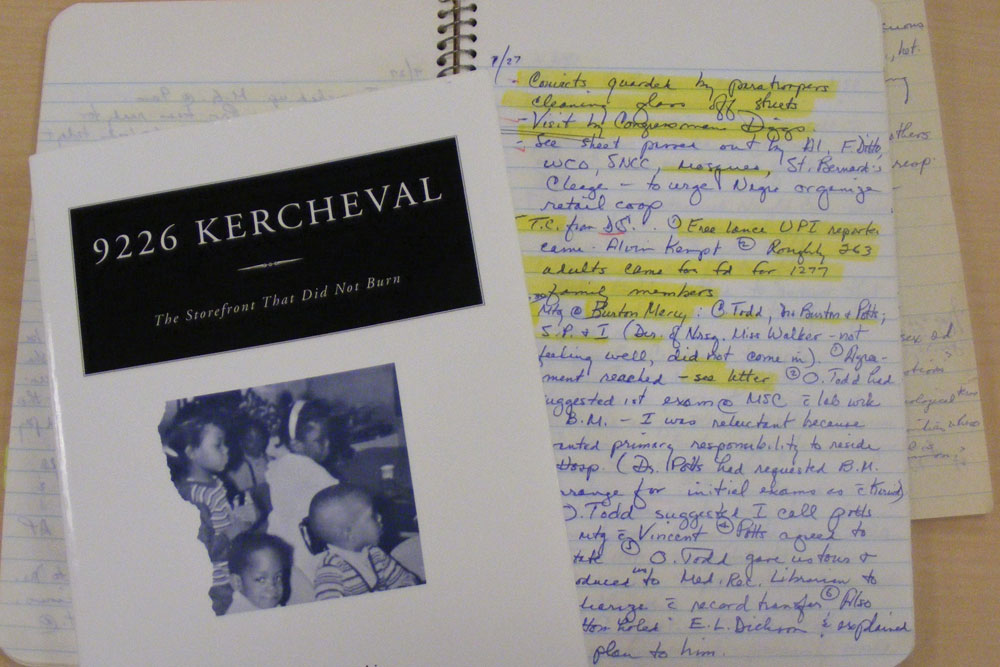
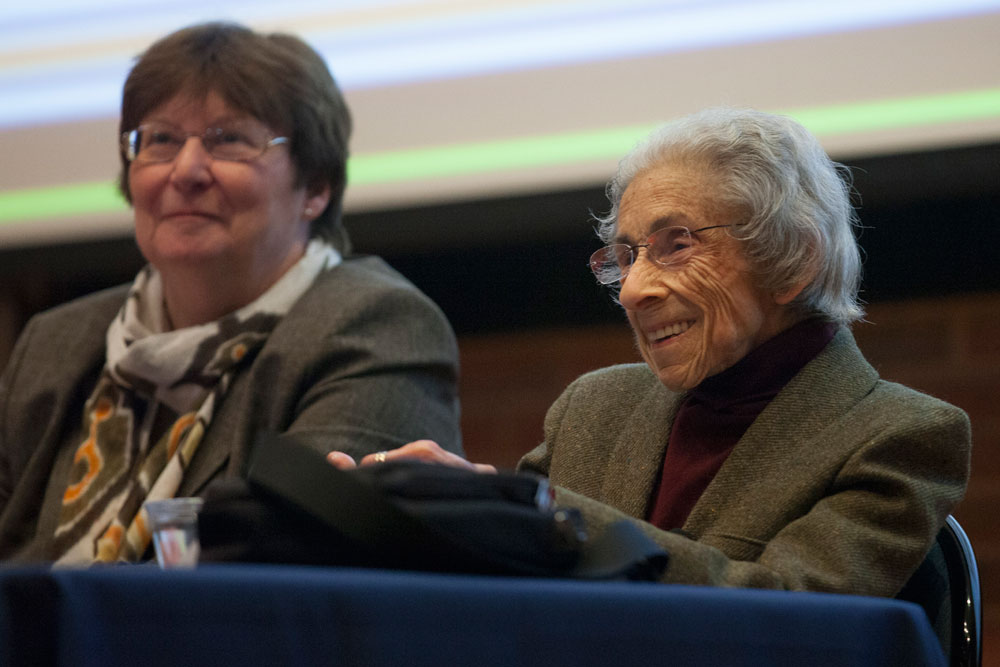
But Mom and Tots, which occupied a storefront at 9226 Kercheval Street, remained untouched, a conspicuous presence on an otherwise gutted avenue.
“This storefront, of all of the buildings around it, did not burn and was not broken into or anything,” Milio said. “People found that after it was over someone had written ‘soul brother’ on the window, meaning it shouldn’t be touched because it belonged to the people there.”
The Bjoring History Center’s Nancy Milio Collection documents this tumultuous period in mid-sixties Detroit, when Milio was a young, white public health nurse just beginning her career. “I could see how people in one part of the city were living in inhuman circumstances in contrast to those in another part of the city. I wanted to help eliminate that disparity,” she wrote. But she also saw that the traditional methods that health professionals used to improve people’s lives were clearly falling short.
Milio’s disillusionment and search for a new direction coalesced into an idea, then a plan: a health clinic for mothers and their children in this poor, predominantly African American neighborhood in downtown Detroit. But she would not impose a model. She wanted it to be run by and for the people of the neighborhood. It had to be relevant to their daily lives. Milio recalled: “The project, if it was to be, was to belong to the people it was intended to serve, so they had to struggle to shape it and I with them for awhile. Then, it would be theirs.”
When Milio received her initial funding, suddenly “everyone wanted to be associated with it—the health department, the hospitals, the mayor’s office, the VNA [Visiting Nurse Association], Planned Parenthood. We got all sorts of offers to do a lot of things and the program developed after that,” Milio recalled. Nonetheless, Milio refused many of their offers, insisting that the neighborhood itself run the clinic.
In 1970, she published 9226 Kercheval: The Storefront That Did Not Burn. The book is partly a documentary account of events and a partly a personal chronicle of her experiences and relationships with the black women who helped build the center.
As Mom and Tots grew, Milio began to scale back her involvement as its director. Several years later, when she stepped away entirely, she knew that her idea—dismissed as impossible, radical, far-out—had actually succeeded.
###
This #FlashbackFriday brought to you by the Bjoring Center for Nursing Historical Inquiry, with special thanks to AAHN president Arlene Keeling, UVA professor emerita, and UVA Nursing professor Pamela DeGuzman, who co-authored “Addressing Disparities in Access to Care: Lessons from the Kercheval Street Clinic in the 1960s,” in Policy, Politics, & Nursing Practice, 12(4), 199-207.
PHOTOS: riot photo from the Detroit Free Press; all others courtesy of the Bjoring Center's Nancy Milion Collection.
